- Home
- A. A. Attanasio
The Wolf and the Crown (The Perilous Order of Camelot Book 3) Page 2
The Wolf and the Crown (The Perilous Order of Camelot Book 3) Read online
Page 2
"You are the son, the only child, of Uther Pendragon and Ygrane, queen of the Celts." Merlin removed his hat and revealed a horrid visage—a long, sallow skull and eyes of shattered glass in bone-pits deep as dragon sockets. "I hid you at White Thorn with Kyner far from your enemies—especially your half-sister, Morgeu the Fey, who would have killed you."
Arthor's stomach winced at the mention of the enchantress Morgeu. "She came to me ... " His voice sounded far away to him.
"Yes, I know." Merlin took the boy's shoulders in his knobby hands and sat him down on a carpenter's bench. "She has told me."
"She seduced me, Merlin." The boy's already pale face drained corpse-white. "I did not know ... I thought she was someone else ... I ... I coupled with her in the night ... it was dark ...."
"Listen to me, my lord." Merlin bent close and his haggard face filled Arthor's sight. "What you did, you did unknowingly. Yet the deed is done. Morgeu the Fey carries your child."
"No!" The sword fell from Arthor's grasp.
Merlin caught it and pressed it back into the boy's hands. "Be strong, my king. Be strong!" Merlin felt tempted to use his magic on the youth, though he knew that would not avail for long. "This is the pain that goes with the truth of your destiny as high king of Britain. The salvation of our people comes at a price."
"Why?" Tears brimmed in Arthor's eyes. "Why has she done this? Does she not realize she has damned us both to hell?"
"Oh, she realizes that perfectly well, my lord." Merlin held the boy's quavering stare with an icy gaze. "And now you must understand, young king, that whosoever would serve heaven must first conquer hell."
King Arthor's Retinue
Proceeding at a stately pace, two elephants, garishly painted and outlandishly feathered, marched down the cobbled road, leaving in their wake a motley procession of horn-blowers, drummers, tumblers, jugglers, clowns, jesters, fire-eaters and sword-swallowers. The noisy parade approached Camelot along the old Roman highway that led from the Amnis, where they had disembarked a gilded barge decorated with gorgon heads and tinsel-scaled serpents.
As they passed through the river hamlet of Cold Kitchen flying their fairy-winged kites and rainbow windsocks, they encountered the cortege of Severus Syrax departing for Londinium. The revelers swept up his followers in their jubilant march and carried them all back to Camelot.
That had been Merlin's plan when he had first sent notice to the courts of war-torn Gaul that Britain would crown a monarch this summer. He had invited all accomplished court performers who wished the protection of the new king to assemble at Camelot and display their prowess. The spectacle of trumpeting elephants and performers garbed in flagrant silks and sequins amused even the battle-hardened troops of Bors Bona, and the warlord signaled for his army to return to the camp-grounds of Camelot.
Severus Syrax himself sat astonished atop his black Arabian stallion. Fabulously vulgar and antic as the procession appeared at first—with bears dancing at the roadside and jugglers tossing hatchets and torches—he recognized the glory that flowed past him toward Camelot—and toward the king.
These were denizens of the eternal carnival, the celebration of power that had once belonged to Rome and that now gave themselves freely to the boy-king. Syrax dared not turn his back on this gala. The best hope of discrediting Arthor lay with these merrymakers, whose edge of insanity might well cut through the illusion of nobility Merlin strove to weave about the child he had chosen as monarch.
Begrudgingly, Severus Syrax pulled his steed around and signed for his followers to return to the camp-grounds.
Even the denizens of Cold Kitchen, who had become inured to the coming and going of noble personages at Camelot during the fifteen years of its continuing construction, stood beside the highway marveling at the accomplished stilt-walkers and serpent charmers whose every limb crawled with vipers. The hamlet quickly emptied, and its residents followed the parade of merrymakers to the playing fields of Camelot.
Merlin stood with Arthor atop a wooden scaffold on the colossal stone wall overlooking the broad campestral where two parading elephants had come to a halt and knelt before him. The boy gaped at the colorful throng of entertainers who bowed in silent respect before their new lord.
"What manner of amusement is this, Merlin?" Arthor asked through a look of widening wonder. He took in the harlequin crowd of mummers, buffoons, contortionists, rope-dancers, and gleemen among a boisterous slew of trained dogs, bears, and bright-plumed birds.
Merlin feigned surprise at the lad's query, "Why, my lord, this is your retinue—a pageantry worthy of a king."
Jokers, Ribalds, Vagabonds
King Arthor, with Merlin standing at his side, sat on a ponderous throne of cedarwood beneath a purple awning. The bulky chair of state, centered on a high platform bedecked with heraldic shields from all the domains of Britain, overlooked the range of the citadel's main gate.
Arthor reviewed the entertainers who had traveled from Gaul to serve at his court. He wore a crimson mantle trimmed with ermine that Merlin had provided and, atop his bristly brown hair, a chaplet of laurel leaves fashioned from gold. Held loosely in one hand and resting across his chest, the sword Excalibur enhanced his regal appearance, though to all who beheld him, despite his regalia, the king appeared for what he was—a coarse youth of fifteen summers.
Painted and feathered elephants, dancing bears, troupes of wise dogs, and numerous skilled performers passed before the king and moved on to the playing fields. The uproarious entertainers caroused in the milling crowds with villagers, farmfolk and the Celtic and British soldiers. Already, torches blazed and kindling piled up for the grand bonfires that would provide illumination throughout the night-long festival. Cooking pits smoked from under the curtain wall, and feast tables offered racks of roasted meats, bread baskets, platters of vegetables, amphorae of fruit wine and kegs of mead.
Merlin proudly noted that each of the warlords and chieftains who had threatened to depart lingered. Their pennants and banners flurried in a balmy breeze above their campsites, and music and laughter seethed beneath summer castle clouds.
Last of the entourage to pass before the king, jokers and ribalds and, hidden in their midst, vagabonds of no trade or skill capered and japed. Merlin quickly identified the vagrants and signaled for Kyner's men, who served as the king's guard, to intercept them. Each drifter received a loaf of bread, a bladder of wine and a place in a wagon that carried them to a barge on the banks of the Amnis.
None of the vagabonds protested except for one dwarf, an imp with red curls. A black-furred, silver-faced monkey squatted on his humped shoulders. The midget ran between the legs of the soldiers who attempted to seize him and darted onto the platform where Arthor sat.
Merlin reached for his staff, intent on swatting the little man and his beast away from the king.
"Do not thtrike me," the dwarf warned through a lisp, wagging a stubby finger, "or I will do what our Lord admonitheth and turn the other cheek!" He spun about and presented his bared backside to the wizard.
With a guffaw, Arthor stayed Merlin's hand. "What is your name, dwarf?"
"My lord!" Merlin objected harshly. "This is a crackbrain, unworthy of your regal presence. Have him removed."
The dwarf jumped about and replied at once, "I am Dagonet. Thith ith Lord Monkey. And you are obviouthly a king who would be a boy! How dwoll! You're lucky we're here to thtraighten you out."
Bedevere
King Arthor liked the look of Dagonet. The dwarf had a large, beardless face splattered with freckles, the visage of a boy. His ready smile and candid blue eyes allowed for no guile, and the king summoned him to his side. "Tell me, Dagonet, how came you into the company of Lord Monkey?"
"I needed a worthy mathter . . ."
Merlin would hear no more. He glowered at the dwarf, took his stave, and left the platform. Arthor, pleased to be left alone with someone he enjoyed talking to, offered no objection to the wizard's departure.
Among t
he arrivals from Gaul, Merlin had spied a one-armed man impeccably dressed in brown cord breeks, leather riding boots, and a maroon crys, a short-sleeved tunic, with one sleeve pinned to the shoulder by an eagle's talon cast in black silver. At his hip, he wore a gladius, the short, razor-sharp sword favored by the old Romans. His bearing and the distinctive rub-marks at the side of his balding head from wearing a helmet suggested that this warrior had forsook his right arm in battle.
Merlin observed the stranger long enough to notice he ate and drank moderately, responded appreciatively to talented pipers and fiddlers, avoided raucous fools, and keenly watched all that transpired about him. As soon as the man sensed he was being followed, Merlin approached him. Ever cautious, the one-armed soldier turned, protecting his back against a heap of unhewn mason's blocks. He bowed with curt deference. "My lord Merlin."
"I notice you are an unattached soldier." The wizard leaned on his staff and tilted his head so that the stranger could reckon clearly the demon traits of his aspect—and if the soldier felt fear or disgust at this aspect, he did not show it. "Why are you come to Camelot?"
"To serve the new king," he answered at once in crisp, lucid Latin. "I am Bedevere of the fallen kingdom of the Odovacar. I have in my riding bag letters of introduction from my former masters—our holy father, Pope Gelasius, his servant, Theodoric, king of the Ostrogoths, and Theodoric's brother-in-law, Clovis, the Merovingian king."
"You have served three great leaders, Bedevere." Merlin allowed suspicion to taint his voice. "Were you incapable of fidelity to one?"
Not a hint of offense disturbed Bedevere's placid countenance. "I am faithful to the need of those I serve. I sacrificed my right arm defending our holy father against the Huns and served him till death parted us and my ancestral kingdom of Odovacar fell to the Vandals. Then I took up the cause of the Salian Franks, whose warband consists wholly of free peasants with no nobility and no cavalry. I served their brave leaders, Theodoric and Clovis, until they had avenged all I had lost to the pagans. Now they are secure in their alliance with the Burgundians in Aquitaine, and my service to them had become more diplomatic than martial. I have come here to the frontier of Christianity to offer my sword to a king who faces certain doom, for it is my destiny before God to champion the hopeless."
The King's Gala
Through the night, festivities at Camelot continued undiminished. Song, dance, and laughter filled the flame-lit slopes and fields of the fortress plateau. The tall, serrate battlements of the unfinished citadel glittered with torches and lanterns.
King Arthor himself came down from his regal platform at the insistence of his new friend, the dwarf Dagonet, and danced from one campsite to the next. He mingled freely among both Celts and Britons, showing favor to all.
"Look at him," Severus Syrax groused from under his pavilion, where he sipped wine with the other British warlords Marcus Dumnoni and Bors Bona. "He's giddy. A giddy boy. Is that our king? Bah!"
"It is good a king can laugh as well as fight," Marcus Dumnoni offered. "Arthor is ruthless on the field. Kyner dubbed him his Iron Hammer."
"Does he strike harder than you? Or Bors Bona?" Severus Syrax plucked unhappily at the tines of his black beard. "I say not. He is king only because he is Merlin's puppet. And we all know the wizard for an unholy demon."
"True, Syrax, I am a demon." Merlin's voice coughed like wind, and all three warlords leaped to their feet, goblets clattering, wine splashing. The guards posted around the commanders' pavilion spun about, startled that the tall wizard could have passed them unseen.
"Merlin!" Syrax shouted irately, wiping wine from his silken blouse.
"You call me a demon, Syrax, and I am here to answer for that." Merlin's silver eyes shone like pieces of the moon. "Behind this human guise, I am a demon, an incubus that forced myself upon my dear mother, Saint Optima. She did not resist. Nor did she spurn me for the loathsome creature I am. She loved me as Our Lord taught us to love all of God's creation—even our enemies. And so I—a demon—even I am redeemed by love. My mother's love created this human form to serve the Prince of Peace. To protect the meek from the mighty. That also is the mandate of our king, Arthor, and that is why I serve him."
As he spoke, memories smoked and burned slowly, smoldering with time—so that time itself pulsed like hot coals, dark with the heat of passions that had possessed him in his demon life as Lailoken. As with every demon who had been flung through the cold void with the angels when heaven spilled its light into darkness at the moment of creation, he had raged.
He had destroyed worlds, ravaged every attempt of the angels to create a sanctuary for life in this dark universe. He had hated the angels, who called themselves Fire Lords. He had believed the Fire Lords insane to sanction life in a cosmos of vacuum, where the light of origin dimmed toward nothingness.
Time jarred once more into its natural rhythm as Syrax hissed: "Why are you sneaking about like an assassin?"
"Sneaking?" Merlin's smile revealed jagged teeth orange as embers, and he gestured with his staff to the bustling dancers and acrobats hurtling through the summer night. "I walked directly here to speak for our king."
"Your king, wizard," Severus Syrax snapped.
"I understand that you have an alliance with the Foederatus, Syrax." Merlin spoke in a cold voice, referring to the pagan confederacy of Jute, Pict, and Saxon armies that controlled the lowlands east and south of Londinium. "So perhaps Arthor is not your king. Will you instead pay obeisance to King Wesc, commander of the Foederatus?"
"I manage trade agreements with the Foederatus for Londinium," Syrax replied haughtily. "I am a Christian. I would never bend my knee to a pagan."
"Good. You will have your chance to bend your knee to your Christian king, then." Merlin passed a slow gaze among the three warlords. "I understand your reluctance to accept Arthor as your king, for he is young. And though he has been tried in battle, his leadership remains untested. So, I say this to you three British lords as I will say again to your Celtic counterparts: Arthor's leadership will be tested, and he will not be found wanting."
"So you say, Merlin." Severus Syrax glanced at the others for support and saw that they watched the wizard with awestruck solemnity, and he held his tongue.
"In the coming days," Merlin continued, "our king leaves for the north to secure the most vulnerable border of our kingdom, the hostile territory between the Antonine and Hadrian walls. After establishing his authority there, he will tour his entire domain and seek pledges from every warlord and chieftain in the land. Those who swear allegiance to him will earn a place in his court. And those who do not—" Merlin's eyes brightened. "They will be destroyed."
King Arthor's Hangover
Music and laughter continued into the morning. Sunshine lancing through the ranks of Irish yews on the eastern slopes hurt King Arthor's eyes and inspired a throbbing headache. He retreated into the citadel, seeking a dark alcove among the workers' trestles. Sword in hand, he curled into a damp corner on a bed of hempen cables and pressed the cool blade against his aching brow.
Nausea swept through him, and he chewed the ermine fringe of his mantle. "Too much wine," he moaned. He had never drunk so much in his life.
Dizzy images of Merlin's scowling visage spun before him. "Tour your kingdom—but not as a drunk! Use this first year wisely or stand aside."
The wizard's challenge whirled in him, echoing dimmer, then louder. Out of that vortex rose the figure of a woman with muscular shoulders, flame-wild hair, and tight black eyes in a moon face. Morgeu the Fey! The vision of the big-boned enchantress smeared into shadows.
"Ho! My lord!" Dagonet the dwarf called from among the crowded workbenches. "Where have you gone? You are twithe my thize and mutht dwink twithe what I have dwunk!"
Lord Monkey swung out of the dark on a cable and leaped squawking onto Arthor's shoulder. With a fanged grin, the beast thrust a rind of ripe cheese under the young king's nose.
Arthor swatted the monkey away, an
d it bounded into the dark with an angry shriek. "Leave me alone," the king groaned and gagged.
"Ah, but I have here a bladder of muthty Iberian vintage with a peppery afterbite that will pinth your thinutheth!" The dwarf strode from under a mason's scaffold with a wobbly pig's bladder in his hand. "Come, dwink! Today you are king! Tomorrow—God help uth, tomorrow ith already upon uth! And you're thtill king! Dwink!"
Arthor waved him away. "Leave me, Dagonet. I am sick."
"Thick? Not at all!" The dwarf swaggered closer. "You are king!" He unstoppered the bladder and wafted it under the king's pallid face. "Drink, thire, and give Lord Bacchuth example of how a Bwitish king doth revel!"
The dwarf's leering face and the acrid stink of soured wine disgusted Arthor, and he waved his sword threateningly. "Be gone, dwarf, or I swear ... "
"Thwear by our Thavior'th toenailth if you mutht!" Sloshing wine, Dagonet backed off. "I thee clearly now, thire - Lord Bacchuth" reign ith thafe from the callow liketh of you. I pway for all of uth that you hold your thepter more firmly than your wine. Lord Monkey and I depart. We will weturn anon, when your head ith no longer too big for your cwown."
Arthor groaned. He had never danced so strenuously. He had been vehement in his carousing, as if enough wine and merriment could counter the abiding shame and oppressive doubts that squatted in his heart.
Incest!
The word ached in him, too ugly to voice aloud and more painful than his besotted headache. I have engendered an incest-child! And I dare believe I could be king? The dwarf is right. No crown belongs on my head.
He groped for his gold chaplet, found it missing, and groaned for the justice of that. A wave of nausea swelled in him, and with a gurgled cry, he vomited.
The King's Steward
Twisted with nausea, King Arthor lay in his vomit. His head pulsed with pain, and his heart clopped desultorily in his chest, heavy with despair.

 The Conjure Book
The Conjure Book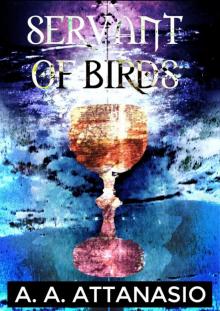 Servant of Birds
Servant of Birds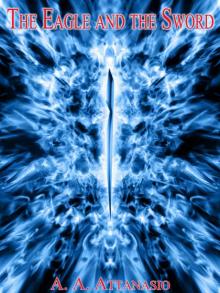 The Eagle and the Sword (The Perilous Order of Camelot Book 2)
The Eagle and the Sword (The Perilous Order of Camelot Book 2)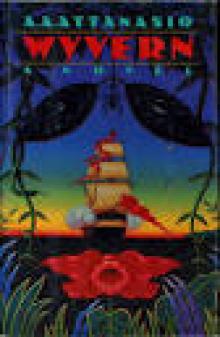 Wyvern
Wyvern The Last Legends of Earth
The Last Legends of Earth The Dark Shore (The Dominions of Irth Book 1)
The Dark Shore (The Dominions of Irth Book 1)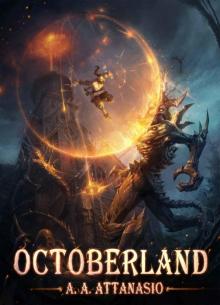 Octoberland (The Dominions of Irth Book 3)
Octoberland (The Dominions of Irth Book 3)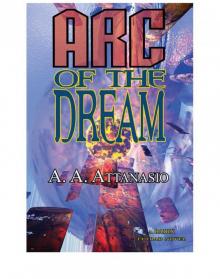 Arc of the Dream
Arc of the Dream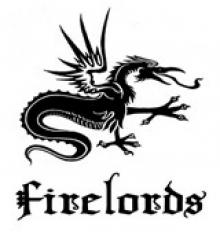 p1b6fn7sdh1ln0g4v1pkvkuqim54
p1b6fn7sdh1ln0g4v1pkvkuqim54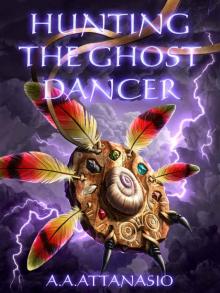 Hunting the Ghost Dancer
Hunting the Ghost Dancer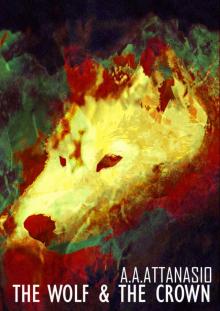 The Wolf and the Crown (The Perilous Order of Camelot Book 3)
The Wolf and the Crown (The Perilous Order of Camelot Book 3)